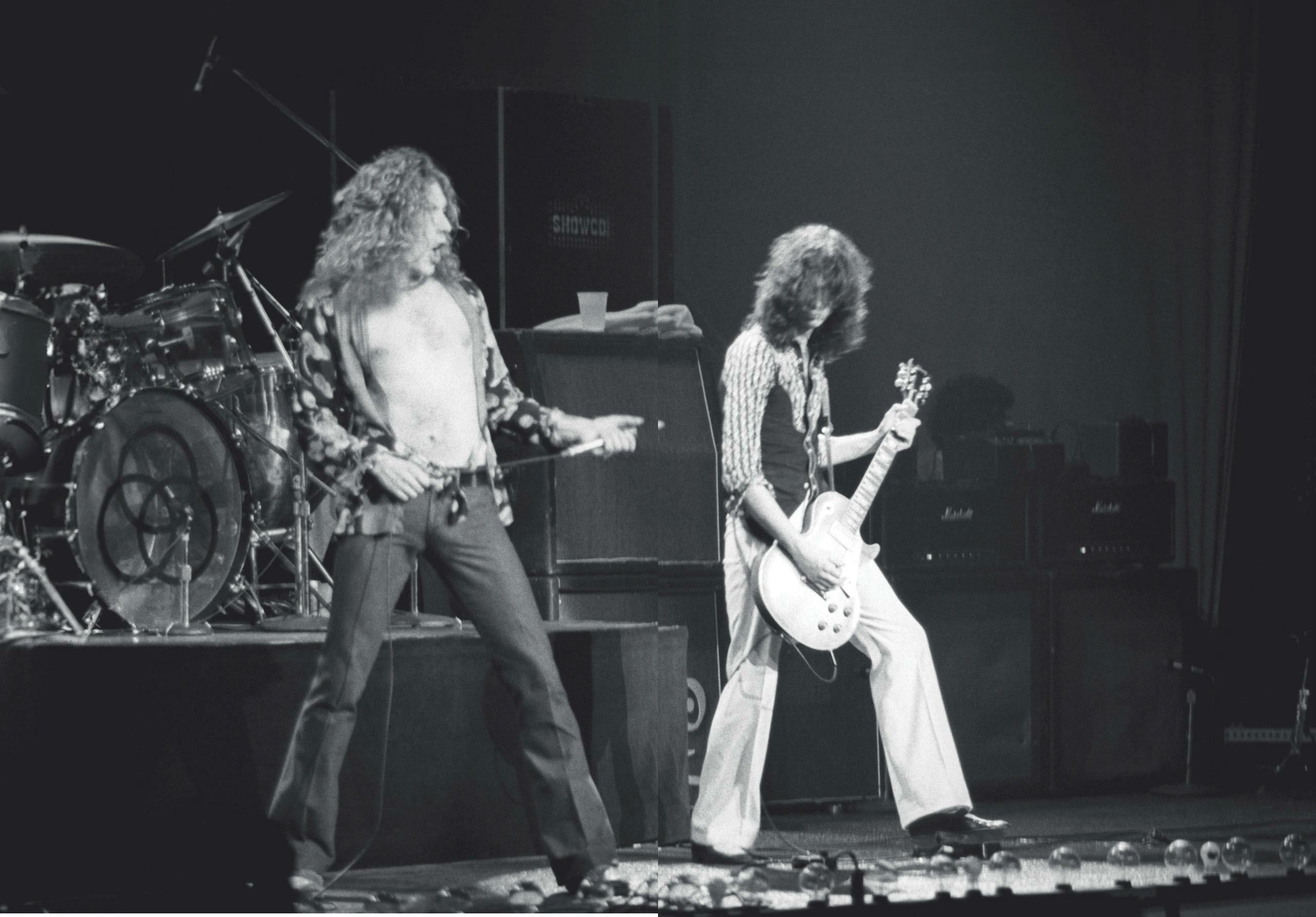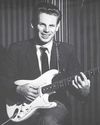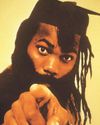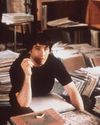
But they eventually regrouped to make an album that rivals their canonical first four self-titled LPs as their greatest-and this time it was a double. On the 50th anniversary of the release of Physical Graffiti, Dave Lewis recalls the making of Zeppelin's magnum opus (p78), remembers the day he bought Zep's meisterwerk (p79), and discovers what Zep were listening to when they made it (p81), while Nick Anderson compiles a Physical Graffiti discography (p87) and unveils a spread of PG memorabilia (p82). And finally, on p85, David Stubbs assesses the album's sonics and considers its impact 50 years on...
When the four members of Led Zeppelin left the stage on 29 July 1973, after a performance at Madison Square Garden, they were greeted by the news that $203,000 of takings had been stolen from their Drake hotel deposit box. Had the tour been a disaster, it may well have been the last straw.
However, this two-legged, 34-date assault on America had been a huge success. The opening dates alone, at Atlanta and Tampa, had seen them play to a combined audience of over 100,000. Two-night stints in Los Angeles, Chicago, and Detroit, respectively, another 50,000 event at Kezar Stadium in San Francisco and three consecutive nights at Madison Square Garden in New York, confirmed their status as not just a mere rock band but an entertainment phenomenon: the world's biggest rock group, the Stones and The Who possibly excepted.
What it also did was make it clear that they desperately needed a rest. Back in England, Jimmy Page, in an NME interview with Nick Kent, declared, "Everyone went over the top on the tourI know I did."
Esta historia es de la edición February 2025 de Record Collector.
Comience su prueba gratuita de Magzter GOLD de 7 días para acceder a miles de historias premium seleccionadas y a más de 9,000 revistas y periódicos.
Ya eres suscriptor ? Conectar
Esta historia es de la edición February 2025 de Record Collector.
Comience su prueba gratuita de Magzter GOLD de 7 días para acceder a miles de historias premium seleccionadas y a más de 9,000 revistas y periódicos.
Ya eres suscriptor? Conectar

HI-FIDELITY?
Running a record shop is a dream for many music aficionados. Steve Burniston investigates how to run a successful one

THE ENGINE ROOM
The unsung heroes who helped forge modern music

UNDER THE RADAR
Artists, bands, and labels meriting more attention

45 SHEFFIELD 45s
Continuing our celebrations of RC's 45th birthday and following on from our look at the best 45s to come out of Manchester, Liverpool, Bristol and Glasgow, we focus on the urbanisation formerly known as Steel City: Sheffield. Close to the (Nether) Edge: Jeremy Allen

Finished Symphonies
In the late 80s, Shelleyan Orphan made rarefied, ravishing, precious (both meanings) baroque pop, all chamber quartet accompaniment and literary reference points, like an 18th century Cocteau Twins.

"BLACK BRITISH PEOPLE HAD SOMETHING TO SHOUT ABOUT"
Breaking new ground for black music in Britain from his teenage years in Matumbi in the early 70s, Dennis Bovell went on to become one of reggae's most highly regarded producers, helping popularise lovers rock. He also played a pivotal role in post-punk's experimental incorporation of dub influences on records like The Slits' Cut and The Pop Group's Y. As new compilation, Sufferer Sounds, reaches back to his early days to compile some of his best early dub plates, Lois Wilson gets the full backstory from one of British music's most enduring forces.

FRENZY REUNITED
Swindon's finest musical export, XTC were also one of the most quietly influential British bands, setting a template for Britpop while pioneering a brand of left-field guitar pop – from herky-jerky invention to consummate craftsmanship – that has spawned many imitators.

Paperback Blighters - The books every record collector should read.
The books every record collector should read. Vinyl, you may have heard, has made a big comeback. In 2022, sales of vinyl albums surpassed compact discs (CDs) for the first time in more than three decades in terms of global revenue, racking up more than $1.2bn.

"Beware the Savage Lure/of 1984..." - David Bowie is one of the most venerated musicians ever. But even he had his bad periods.
David Bowie is one of the most venerated musicians ever. But even he had his bad periods. For many, 1984 remains the nadir of his Phil Collins” phase; an artistic/sartonial/tonsorial disaster area. But was it really that awful? Forty years on, Matt Phillips explores Bowie's so-called annus horribilis.
